Philosophy > DISCUSSION POST > University of the People - PHIL 1404PHIL 1404 Discussion Forum Unit 3 (All)
University of the People - PHIL 1404PHIL 1404 Discussion Forum Unit 3
Document Content and Description Below
Discussion Forum Unit 3 by Joseph Choi (Instructor) - Tuesday, 12 November 2019, 11:47 PM Number of replies: 101 Class, we are in week 3. Hope you all find ways to stay motivated. Here are the qu... estions for this week. Please read the case study entitled I Wouldn’t Change a Thing that you find in the reading assignment. Note: There is a link included in the textbook as part of the case study that no longer works. The information from the link is not needed to answer the following questions. Based on what you have learned in this unit, answer the following questions: 1. Tanksley reports about her young life up to this point that “if I had to do it all over again, I wouldn’t change a thing.” Can you use this as a point of departure for o defining Nietzsche’s eternal return and showing how it works? o characterizing Tanksley’s professional life as one fit for approval by Nietzsche’s eternal return? 2. The values guiding Wallace Souza’s work as a news reporter in remote Brazil—especially the kinds of images judged appropriate for TV there—are quite different from those guiding TV reporting in the United States. Why does Nietzsche believe this kind of cultural clash is a reason to subscribe to the eternal return and simultaneously abandon traditional ethical theories, which attempt to pertain universally? 3. Tanksley reports about her young life up to this point that “working in the government sector where my daily responsibilities afford me the opportunity to empower and inspire everyday people is a career that ignites my passion for people.” How might an advocate of the eternal return respond to this sentiment? Explain. 4. Whose life seems more in tune with how you imagine yourself living the eternal return, Souza’s or Tanksley’s? Why? --Dr. Choi 277 words PermalinkReplyIn reply to Joseph Choi (Instructor) Re: Discussion Forum Unit 3 by Wayne Higgins - Friday, 29 November 2019, 8:34 PM Hi Everyone, 1. Tanksley reports about her young life up to this point that “if I had to do it all over again, I wouldn’t change a thing.” Can you use this as a point of departure for a. defining Nietzsche’s eternal return and showing how it works? Creative Commons, (2012) explains Nietzsche’s eternal return as setting up a rule so that anyone in any part of the world could use it to establish business (and no doubt life) ethics. Count Nietzsche's theory was that before we take any action, we should imagine that we will repeat our lives over and over again and again. So when we make a decision, we should do so keeping that in mind. Tanksley decided that: "if I had to do it all over again, I wouldn’t change a thing.”. In Nietzsche’s eternal return she would do exactly that and continue for eternity being a politician serving the needs of her voters, (Creative Commons, 2012). b. characterizing Tanksley’s professional life as one fit for approval by Nietzsche’s eternal return? Now let's take the first answer a little further. As Tanksley decided to accept her calling as a politician, she felt it was a perfect fit for her deep-seated willingness and believed it her life's purpose, to serve people. When we consider Nietzsche’s eternal return as defined in Creative Commons, (2012) we find that she would have made the correct decision and could very happily remain in her post for 'eternity', (Creative Commons, 2012). 2. The values guiding Wallace Souza’s work as a news reporter in remote Brazil— especially the kinds of images judged appropriate for TV there—are quite different from those guiding TV reporting in the United States. Why does Nietzsche believe this kind of cultural clash is a reason to subscribe to the eternal return and simultaneously abandon traditional ethical theories, which attempt to pertain universally? Creative Commons, (2012) brings to light a life of choices which do not fit into the average American's ethical morals. Looking at Souza's life we can consider these point. The reason Nietzsche believes this kind of cultural clash is a reason to subscribe to the eternal return and simultaneously abandon traditional ethical theories is because there is very little room for boredom in Souza's life. It is almost like joining the lives of 4 people into one person. Souza's choice of vocation is possibly the most daring, adventurous, controversial and seemingly unethical. However, in a Brazilian cultural perspective, it is very normal. Reasoning against Nietzsche belief would nullify most ethical arguments based in a traditional ethics realm. The only way to 'stay alive for eternity' would be to assume a career or work in a vocation as daring, adventurous, controversial and seemingly unethical such as Souza's, (Creative Commons, 2012).3. Tanksley reports about her young life up to this point that “working in the government sector where my daily responsibilities afford me the opportunity to empower and inspire everyday people is a career that ignites my passion for people.” How might an advocate of the eternal return respond to this sentiment? Explain. An advocate of the eternal return would question Tanksley's capability of maintaining the level of passion she believes she has. Working with people is possibly one of the most rewarding careers, however in the eternal return perspective, it is also the most frustrating and challenging. Could she maintain her enthusiasm for eternity?, (Creative Commons, 2012). 4. Whose life seems more in tune with how you imagine yourself living the eternal return, Souza’s or Tanksley’s? Why? Souza’s life seems more in tune with how I imagine myself living the eternal return. I get bored very quickly and I don't live my life as most people would imagine theirs to be. I don't follow most norms or traditions. I am always looking at what lies beyond the horizon and have an inquiring mind, which has a craving for knowledge leading me to ingests information almost incessantly. If I were to choose a life for eternity, I would find Souza's life the most satisfying, (Creative Commons, 2012). References Creative Commons. (2012, December 29). What is business ethics?. Retrieved from https://2012books.lardbucket.org/books/business-ethics/s05-what-is-business-ethics.html 698 words PermalinkShow parentReply In reply to Wayne Higgins Re: Discussion Forum Unit 3 by Peter Lee - Saturday, 30 November 2019, 8:20 PM Overall, a good defense of points you made. Two questions: • Just because Souza’s behavior might be “normal” in Brazilian culture, does that necessarily mean that it’s a cultural state desired by Brazilians? • Isn’t the success of eternal return based on someone’s personal perception of it— and not necessarily an external judgement of its value over eternity? [Show More]
Last updated: 1 year ago
Preview 1 out of 63 pages
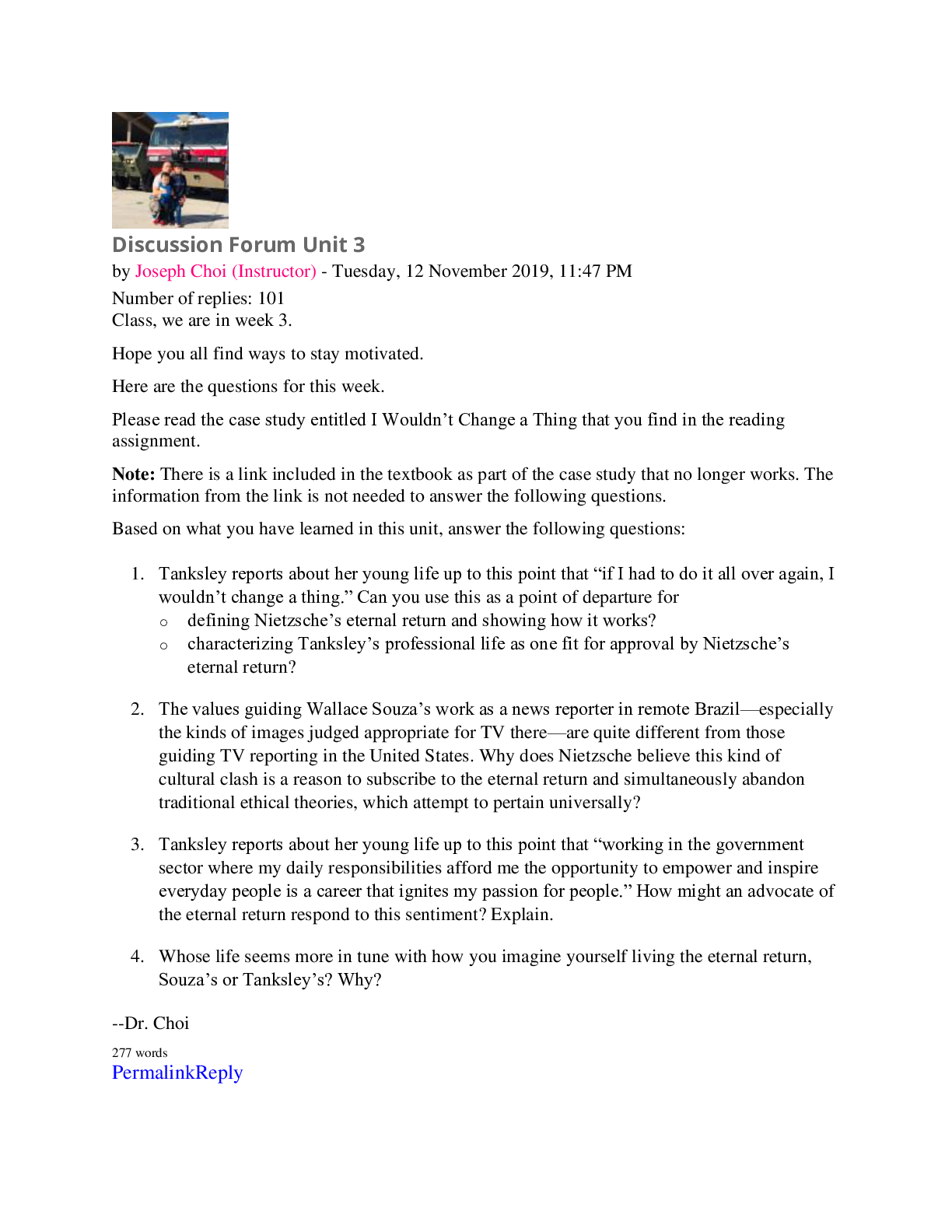
Reviews( 0 )
Document information
Connected school, study & course
About the document
Uploaded On
Apr 15, 2021
Number of pages
63
Written in
Additional information
This document has been written for:
Uploaded
Apr 15, 2021
Downloads
0
Views
117


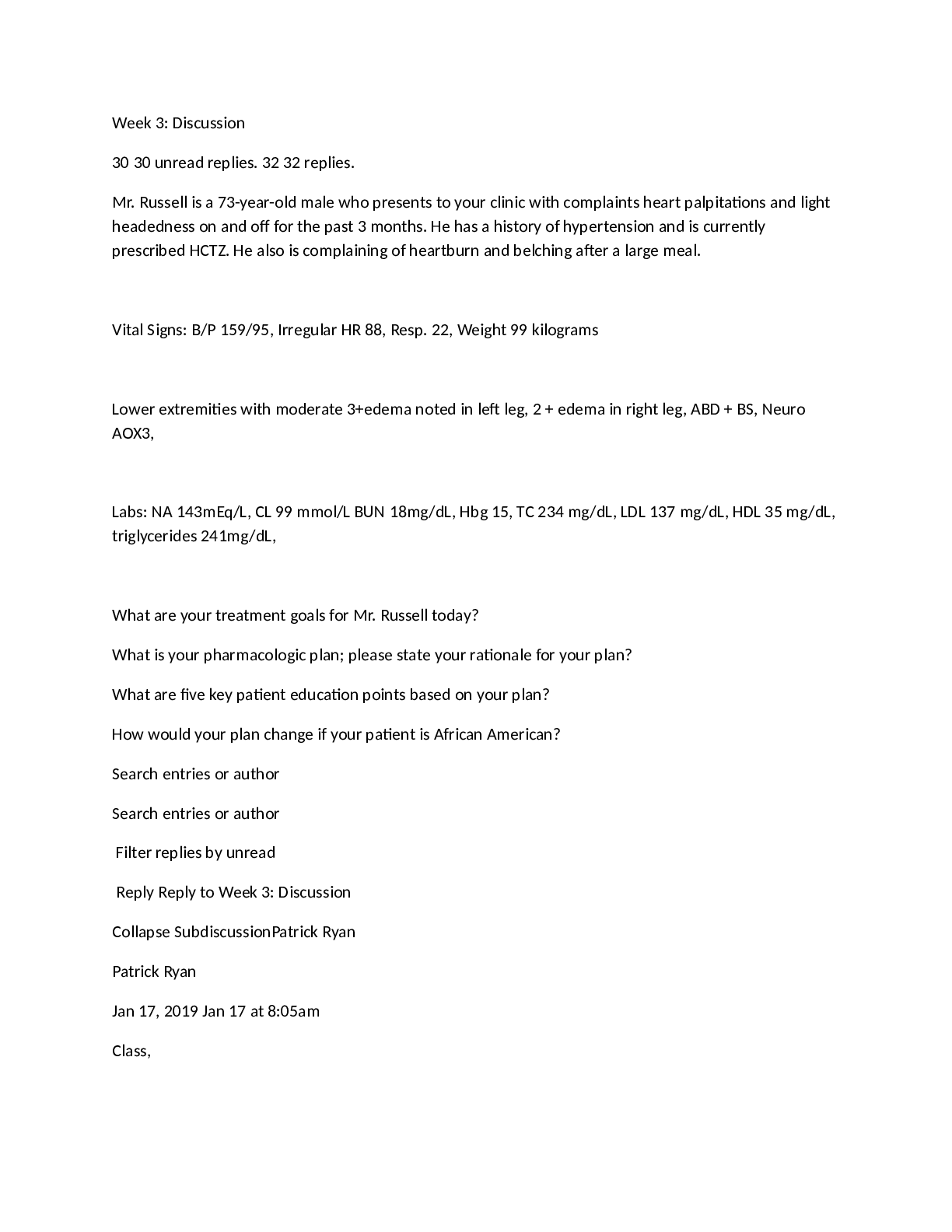





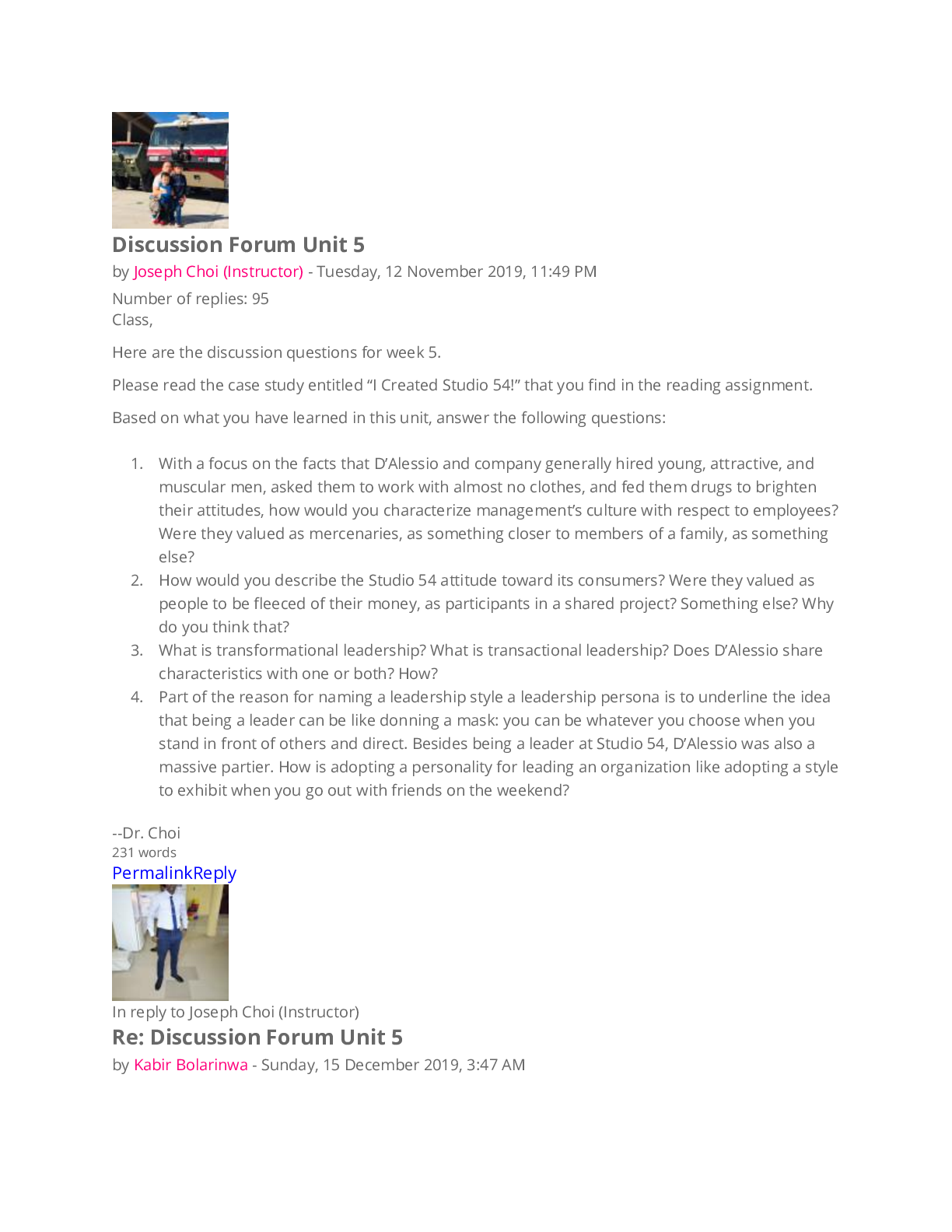
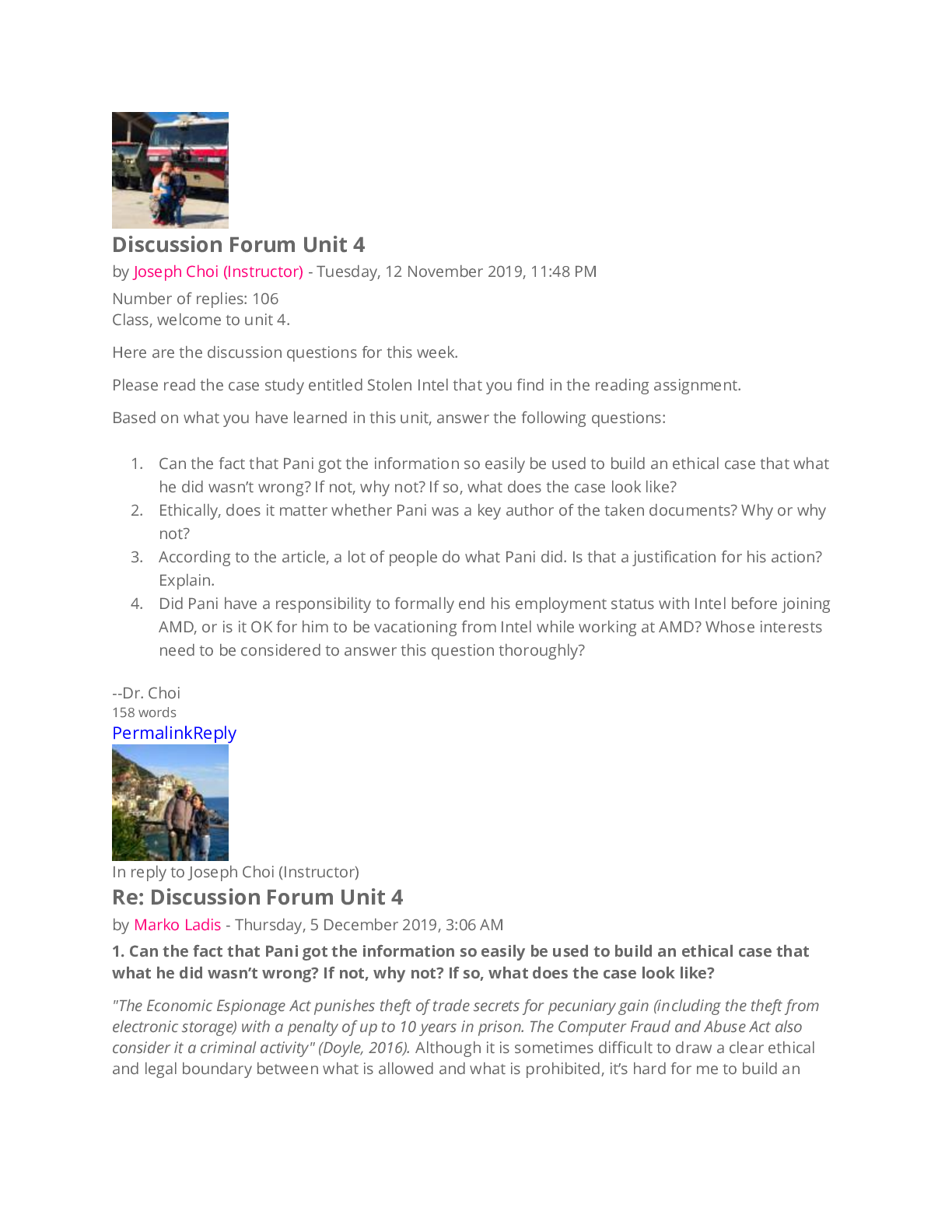
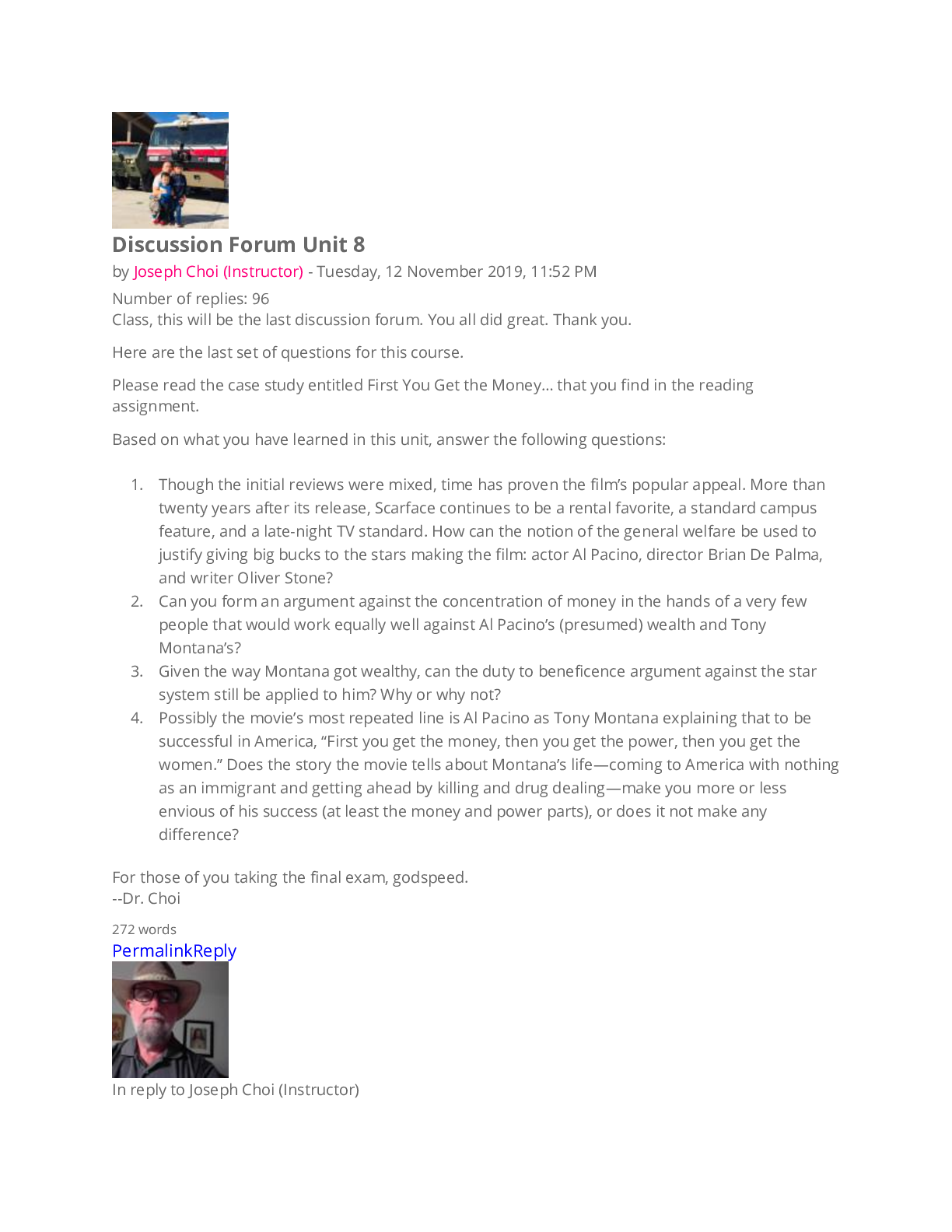
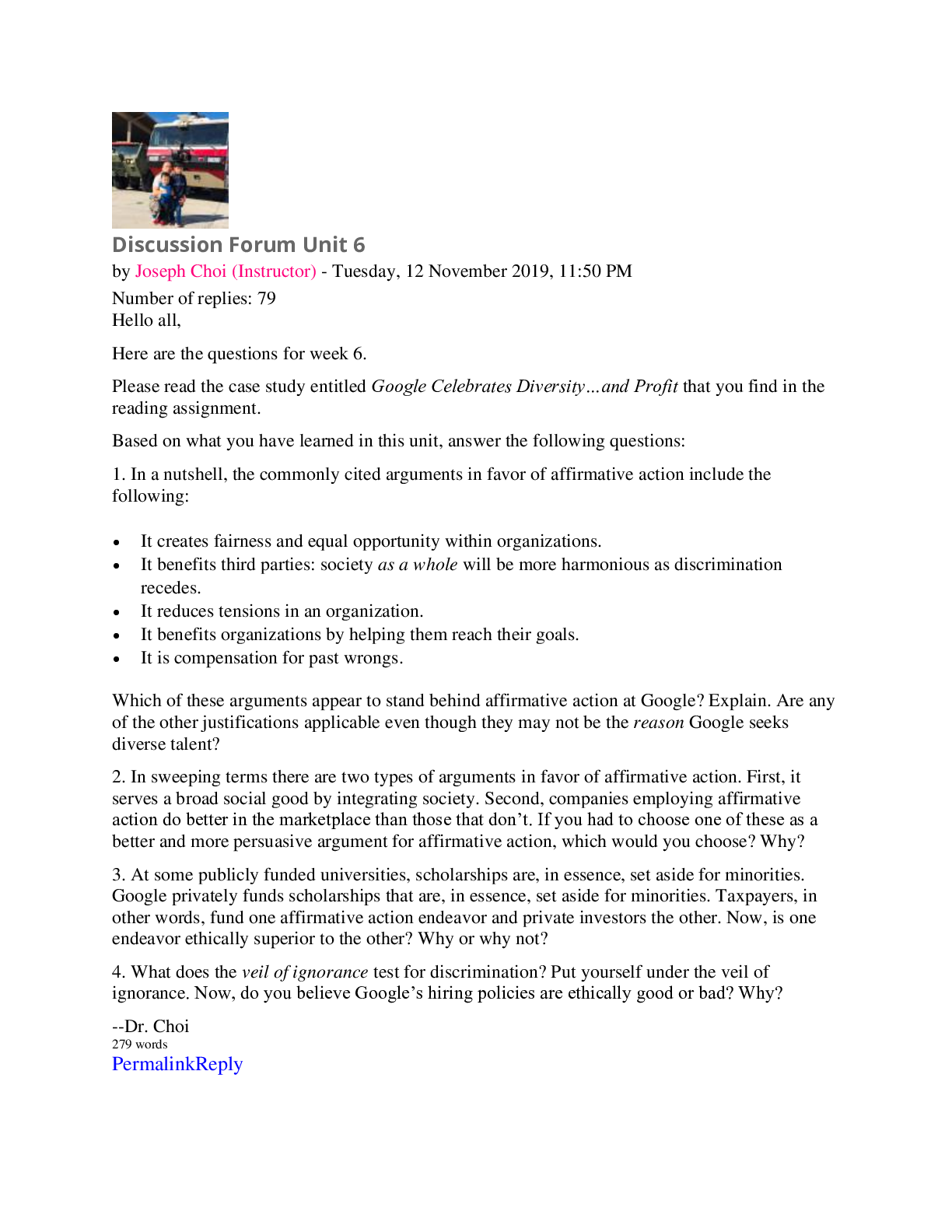
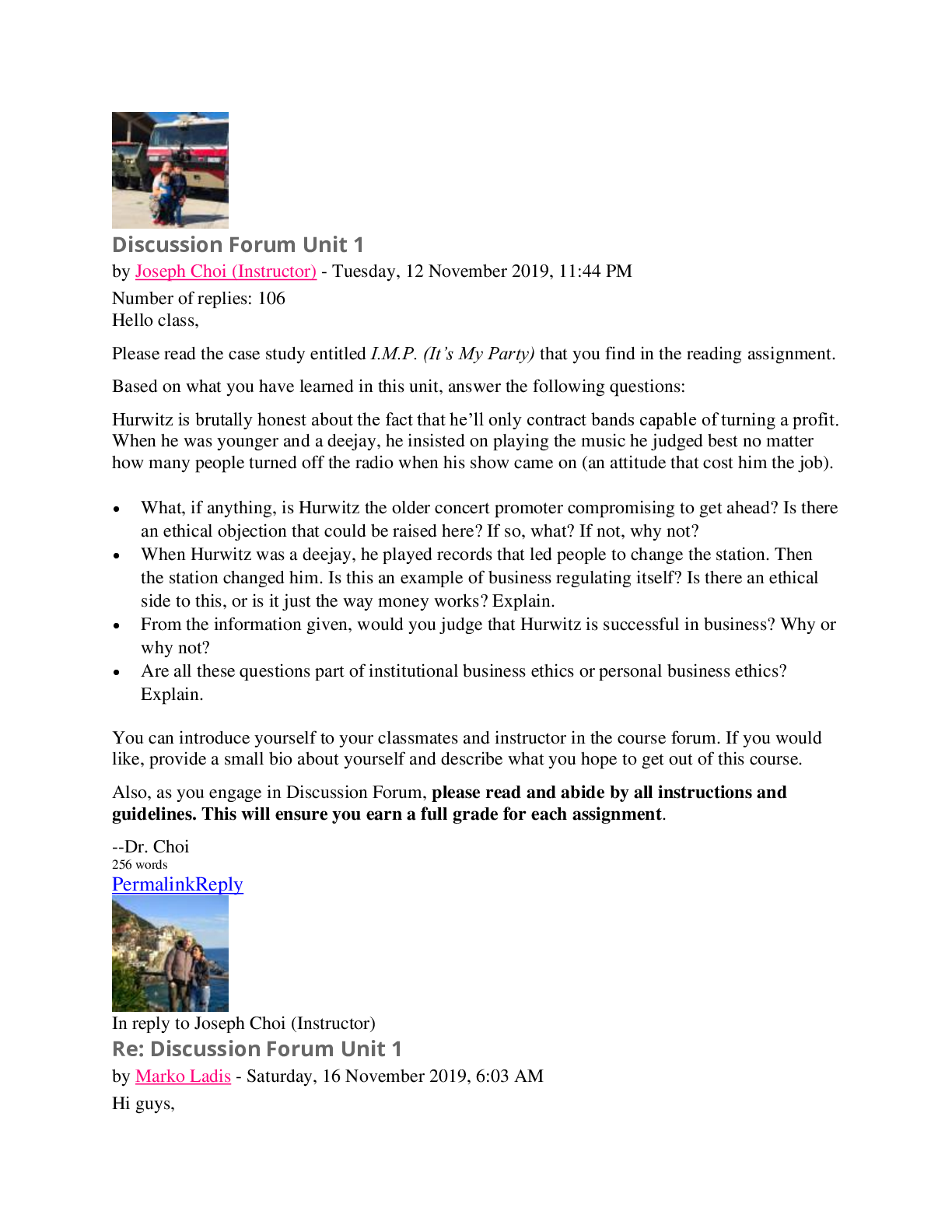
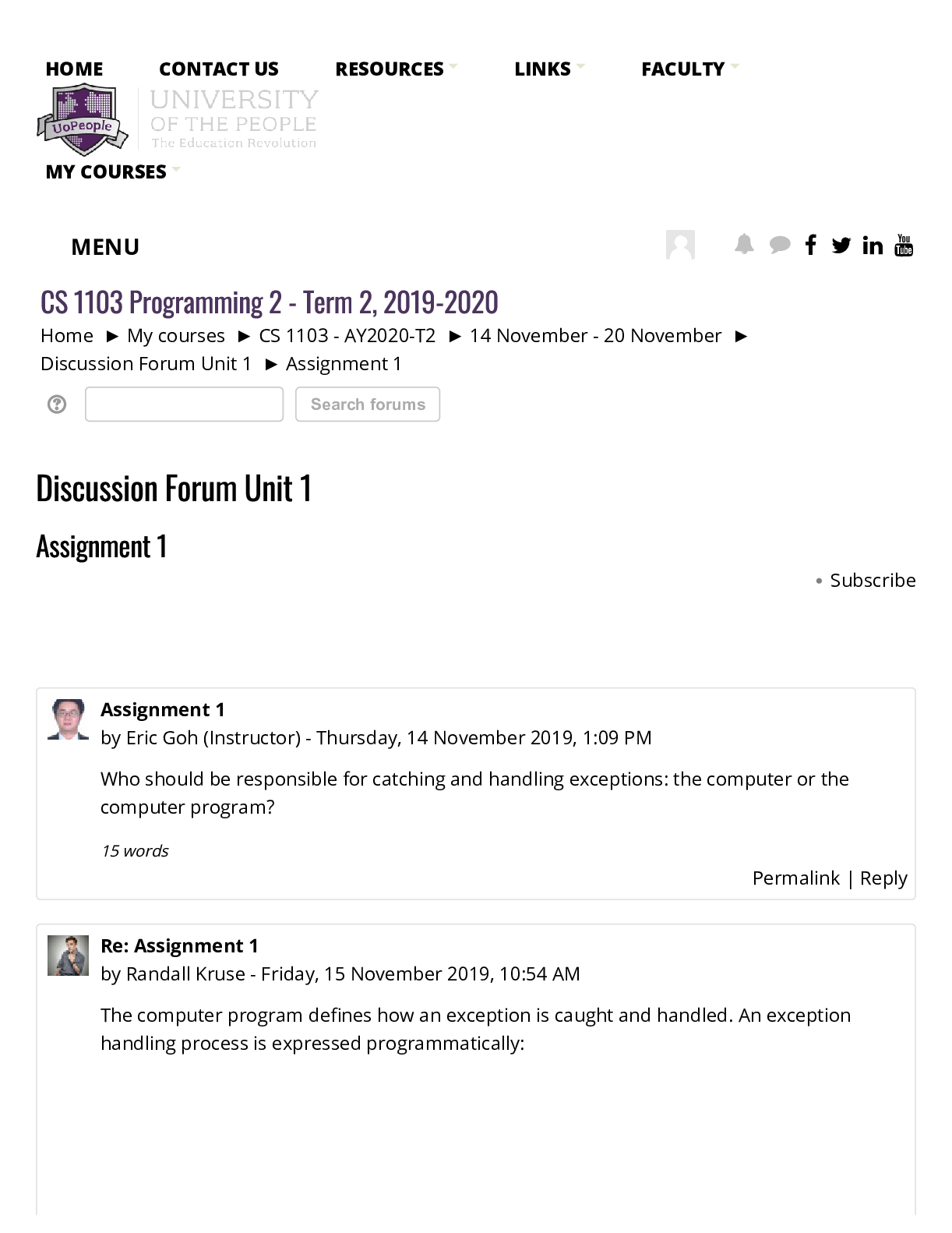
.png)









